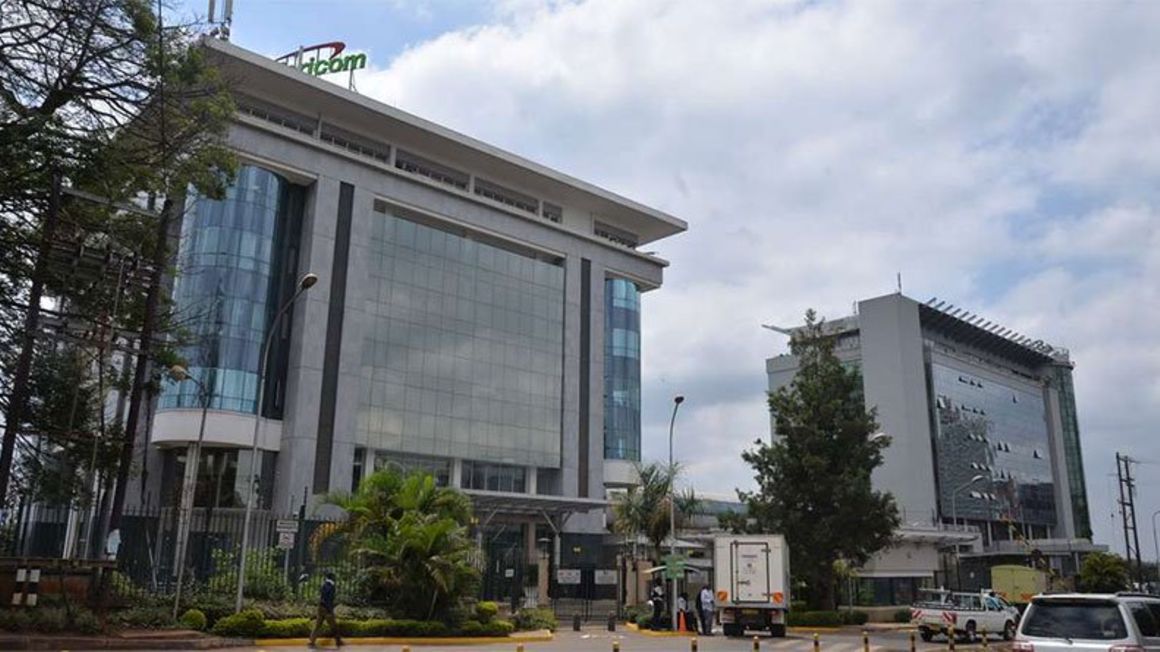
Safaricom headquarters in Nairobi. FILE PHOTO | NMG
Summary
- The input —an equivalent of six percent of Kenya’s GDP— means that Safaricom’s value creation to the Kenyan economy increased by nine percent or Sh54 billion from Sh601 billion the previous year.
- The economic contribution was in the form of jobs, value chain opportunities for other businesses, taxes and dividends to shareholders.
- Safaricom in its annual sustainability report said its operations sustained 1,013,728 direct and indirect jobs, up from 978,633 the previous year.
Safaricom added Sh654 billion to the Kenyan economy in the year ended March 2020, consolidating its position as one of the single-largest contributors to the country’s GDP.
The input —an equivalent of six percent of Kenya’s GDP— means that Safaricom’s value creation to the Kenyan economy increased by nine percent or Sh54 billion from Sh601 billion the previous year.
The economic contribution was in the form of jobs, value chain opportunities for other businesses, taxes and dividends to shareholders.
“Safaricom has played an important role in Kenyan society for the last 20 years and I am eager to see that role expand as we continue to identify and exploit new opportunities in critical areas like agriculture, health and education,” said Safaricom CEO Peter Ndegwa.
Safaricom in its annual sustainability report said its operations sustained 1,013,728 direct and indirect jobs, up from 978,633 the previous year -- bucking the trend in corporate Kenya that was awash with layoffs and employment freezes.
Some 192,747 jobs are directly related to the company, while the rest are derived from indirect activities such as suppliers and users of the company’s various products.
The firm had 5,623 employees as at March 2020, who earned a total of Sh16.94 billion in salaries, bonuses, pension contributions and employee performance share awards.
In the self-appraisal Safaricom said it paid out Sh56.09 billion as dividends, with the exchequer receiving Sh19.63 billion. The government owns a 35 percent stake in the telecoms operator.
The firm also remitted Sh110.98 billion in duties, taxes and licence fees for the year ended March 31, 2020—cementing its credential as a major contributor to government revenues. The payout increased the total duties, taxes and fees paid since inception to Sh809.50 billion.
Additionally, Safaricom injected Sh36.1 billion into the economy as capital expenditure, mainly in payment to suppliers and contractors to expand its fibre network for high-speed data to homes and businesses.
“Our latest true value report indicates that the true value of Kenyan society created by Safaricom increased by nine percent to Sh654 billion, nine times the financial profit of the company earned during the period,” Safaricom said.
Safaricom is the largest listed firm on the Nairobi Securities Exchange (NSE) with a market capitalisation of Sh1.207 trillion and Kenya’s most profitable. The company was founded in 1997 as a wholly owned subsidiary of Telkom Kenya, and in June 2008 listed on the NSE where the government offloaded a 25 percent stake to the public.
The telecoms firm made a Sh74.7 billion net profit in the year to March 2020, meaning that the societal impact is about nine times its earnings.
Safaricom’s business has been strongly evolving from the traditional voice, messaging and data services due to its mobile money platform M-Pesa that has deepened its importance in the economy.
M-Pesa alone employs over 173,000 agents and is used by a large number of merchants to process payment, making it a key player in the national payments system.
The platform accounts for the bulk of the other direct jobs associated with Safaricom, including 440 dealers and 1,095 suppliers.
Utility firms, insurers and mobile money lenders are also increasingly using M-Pesa to process payments.
The telecoms operator had 35.6 million customers as at March, of whom 24.9 million used M-Pesa at least once a month.
M-Pesa Global, the new service that enables M-Pesa-registered customers to send and receive money from countries across the world, also gained momentum to close with 744,000 users up from 180,000 in the previous period.
Safaricom disclosed that it had partnered with 1,095 suppliers, with 898 being local-based.
It spent a total of Sh86.7 billion on products and services during the reporting period, with local suppliers benefiting most.







No comments :
Post a Comment